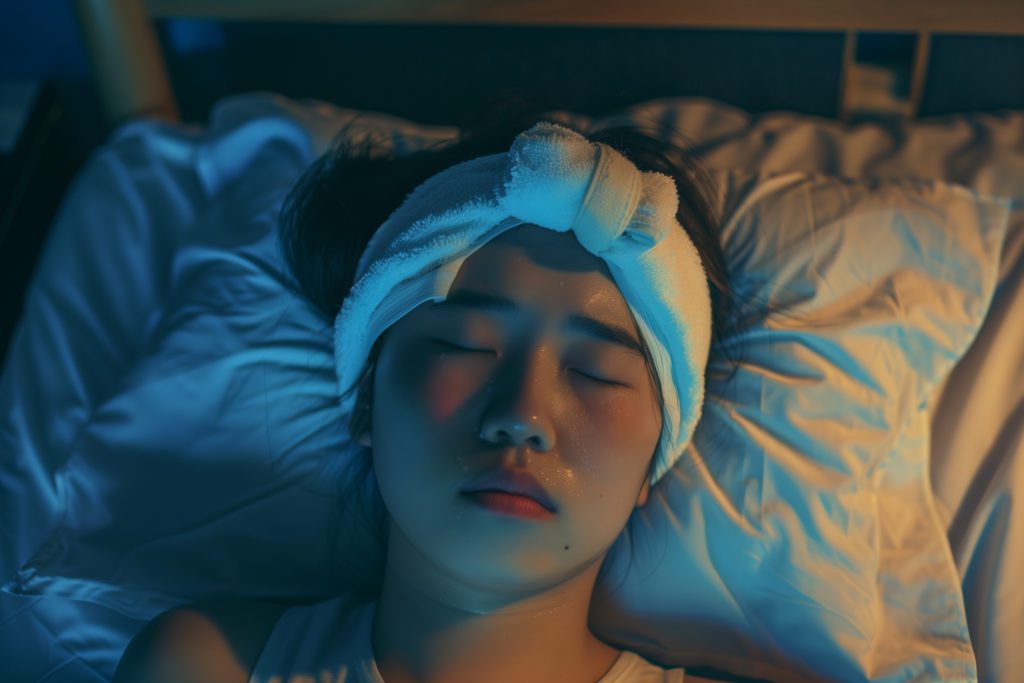
Bedroom Romance: How Sleep Affects Intimacy and Connection?
How sleep affects intimacy and connection is a topic often overlooked but incredibly important. Read this article for practical tips.

Sleep is an essential part of our daily routine, just like eating, drinking, and, well, breathing. Yet, many of us underestimate the role of a good night's rest. Think about it—when was the last time you woke up feeling really refreshed? Sleep affects every aspect of our lives, including our relationships. Yes, you heard that right. How sleep affects intimacy and connection is a topic often overlooked but incredibly important.
In this article, we'll discuss the fascinating and sometimes amusing ways sleep (or the lack thereof) impacts our romantic lives. We'll discuss the science and share practical tips to help you and your partner achieve the dream team status, both in bed and beyond.
The Science Behind Sleep and Its Impact on the Body
Our bodies go through different stages during sleep, including light sleep, deep sleep, and REM (rapid eye movement) sleep. Each stage plays a crucial role in restoring our physical and mental health.
Sleep impacts everything from our immune system to our brain function. When we skimp on sleep, our bodies produce more stress hormones like cortisol.
But it's not just about avoiding grumpiness. Adequate sleep helps regulate hormones that affect our mood, energy levels, and even our libido. That's right, folks—sleep is essential in the battle for a happy and healthy romantic relationship.
So, the next time you consider pulling an all-nighter, remember that you're not just risking dark circles under your eyes but also the health of your relationship.
How Sleep Affects Intimacy?
Intimacy in a romantic relationship is like the icing on the cake. It adds sweetness and makes everything better. But what happens when sleep deprivation comes along and scrapes off that icing?
First, let's talk about physical Intimacy. A good night's sleep can do wonders for your libido. When you're well-rested, your body is more likely to produce the right amount of sex hormones, making you more interested in, well, getting cozy. On the flip side, lack of sleep can lead to a drop in libido and sexual performance.
Then there's the emotional side of Intimacy. Ever noticed how everything seems ten times worse when you're tired? That's because sleep deprivation messes with your mood, making you more irritable and less patient.
Lack of sleep can also make you less empathetic and more prone to misunderstandings. When you're exhausted, your brain's ability to process emotions and social cues takes a hit, making it harder to connect with your partner.
So, if you find yourselves bickering over who left the socks on the floor (again), it might be time to check your sleep schedules.
The Role of Sleep in Emotional Connection
Emotional connection is the glue that holds relationships together. It's what makes you feel understood, appreciated, and loved. But did you know that sleep plays a vital role in maintaining this connection? Yep, it's true.
When we get enough sleep, our brains function at their best, allowing us to regulate our emotions and respond to our partner's needs. In contrast, lack of sleep can heighten negative emotions and reduce your ability to handle stress. It's hard to be the loving and supportive partner you want to be when all you can think about is how tired you are.
Sleep also affects your ability to communicate effectively. When you're sleep-deprived, you're more likely to misinterpret your partner's words and intentions. A harmless comment can quickly escalate into a full-blown argument simply because you're too tired to process it correctly.
To keep the emotional connection strong:
- Prioritize sleep.
- Make it a goal to get enough rest to be fully present and engaged with your partner.
- Remember, a well-rested you is a better, more loving, and more empathetic you.
And that's something your partner will definitely appreciate.
Tips for Improving Sleep to Enhance Intimacy
Now that we've established how crucial sleep is for intimacy, let's talk about some practical tips to help you and your partner sleep better. After all, a couple that sleeps well together, stays well together!
Establishing a Shared Bedtime Routine
There's something incredibly bonding about winding down for the night together. Create a routine that both of you enjoy, whether it's reading a book, doing some gentle stretches, or meditating. Avoid intense discussions or checking emails before bed. Instead, focus on activities that help you relax and connect.
You can use the optimal bedtime routine feature of Pillow to find the perfect sleep schedule for both of you. This can ensure that you're both getting the rest you need, at times that suit your natural rhythms.
Limiting Screen Time Before Bed
We all love our gadgets, but they can seriously mess with our sleep. Make a pact to have a tech-free time before bed. Use this time to talk, cuddle, or simply enjoy each other's company. You might find that these moments of connection become the highlight of your day.
Communicating About Sleep Preferences
Open communication is key. Talk about your sleep habits and preferences with your partner. Maybe one of you is a light sleeper while the other snores like a chainsaw. Discussing these issues can help you find solutions that work for both of you, like using earplugs or investing in a white noise machine.
Managing Stress and Anxiety Together
Stress and anxiety are major sleep disruptors. Combat them together by practicing relaxation techniques like couple's yoga, deep breathing exercises, or even having a bedtime chat to unload any worries. Knowing you have your partner's support can make a huge difference in managing stress and improving sleep.
In the end, sleep is more than just a nightly ritual; it's a cornerstone of a healthy, happy, and intimate relationship. By understanding how sleep affects intimacy and taking steps to improve your sleep habits together, you can strengthen your bond and enjoy a more fulfilling romantic life.

Written by
Dr Aqsa
As a Medical Doctor, Dr Aqsa, uses her knowledge to craft complex medical information that is understandable to the general public. For years, she has tried to improve health literacy and empower readers with valuable health knowledge through her articles, blog posts, and educational materials.
Download Pillow
Get help
Press & News
Legal
Connect
X (Twitter)
Company
Copyright © Neybox Digital Ltd.



